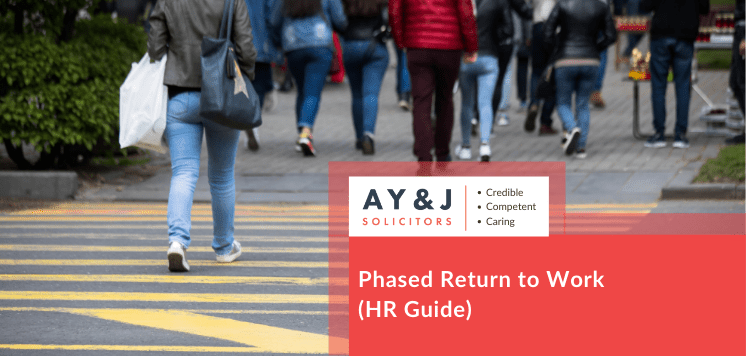Introduction
As the pandemic situation eased over Summer 2021, restrictions on working from home started to lift. In England, since 19 July 2021, people have been able to go into work, although employers are still required to ensure a covid-safe working environment.
Currently, the situation remains under close observation. There is expected to be a surge in infections over the winter months and government guidelines are subject to change.
In the meantime, employers are changing work patterns to balance employee safety with the practical needs of running a business and, as a by-product, finding new methods of managing people effectively.
We are hearing more about “Hybrid Working” and “Flexible working” arrangements, which are growing increasingly commonplace in many industries – this often means asking staff to work from home and/or the office, under a fixed or flexible work pattern.
Needless to say, government employer safety guidelines apply equally to all UK employees.
However, there are some additional factors that Registered Sponsors (employers of skilled worker visa holders) need to stay on top of, if they plan to change their long-term working arrangements.
The Rules: Monitoring & Reporting
Employers who sponsor skilled workers are currently not required to report on sponsored workers who are working from home as a direct result of the covid pandemic.
This greatly eases the burden of submitting a “migrant change of circumstances report” through the sponsor management system (SMS) portal, each time a worker needs to self-isolate or is required to work from home as a matter of company policy (covid secure work).
Other changes to the sponsored employee’s work location must be reported and further changes must be continually updated whilst the employee is working under sponsorship.
If an employer has called back their workforce to the office, whether on hybrid or full-time arrangements, then reporting duties will resume for the sponsored workers.
That is to say, unless the sponsored worker is working from home specifically due to covid (for example a one-off self-isolation requirement) the sponsor must report the change in work location.
The sponsor must report an agreed change in work location within 10 working days of the agreed change, or else they are in breach of their sponsor duties.
Issues that can arise with remote working
Sponsors who have settled upon long-term work-from-home or hybrid arrangements need to be acutely aware that their monitoring duties will be under close scrutiny by the Home Office.
Workers who work remotely or from client sites must be monitored on a regular basis by the sponsor, to give the Home Office assurance that they are reporting for work and doing the role they are sponsored for.
Failure to report changes of location is a commonplace compliance pitfall for sponsors of remote workers, particularly those who work at multiple sites.
Furthermore, remote employee(s) may fall “under the radar” of routine monitoring, because employer trusts that the employee will do their day-to-day job and does not have systems in place for monitoring their employee’s activity and whereabouts.
For example, where the worker is engaged on a client site, the employer may rely on the client to inform them if the worker has not arrived or has irregular absences, rather than checking in with the employee directly, and on a regular basis.
The Home Office has, however, assigned the employer responsibility to monitor their sponsored employee, as a fundamental condition of the sponsorship. Therefore, robust lines of communication would be expected to be in place, to ensure that the sponsor and sponsored worker are continually in touch.
The onus is on the sponsor to check in with the migrant and to record any absences, even if pre-approved.
Daily phone calls, timesheets or online communication platforms can be used for attendance-monitoring purposes and to satisfy the Home Office’s requirements.
Conclusion
Monitoring and reporting attendance and changes to a sponsored worker’s location are key sponsor duties.
Whilst there has been a temporary reprieve for sponsors on reporting on work from home arrangements that occur due to covid, in the longer term, where employers change work location or agree hybrid work arrangements, they must be sure to report changes to migrant work location and be careful to ensure monitoring duties are met where workers are remotely employed.








